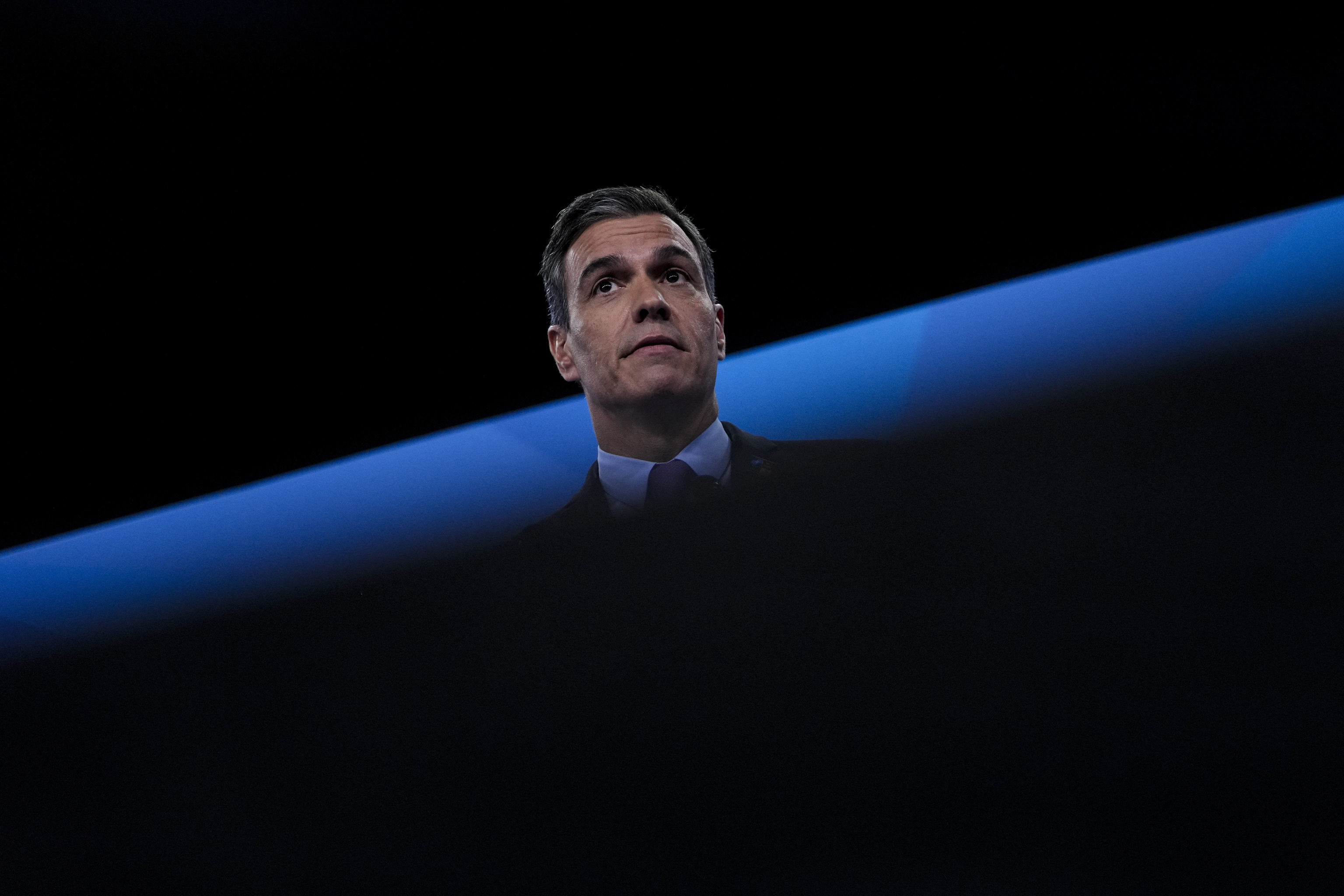Two sets to one down and three match points against in the fourth set. The statistics were not in favor of Carlos Alcaraz, with everything against him. However, just a month ago, the Murcian managed to come back and emerge victorious at Roland Garros. Pedro Sánchez faces a match point today in Congress. He faces three match points against his partners: José Luis Ábalos (corruption), Santos Cerdán (corruption), and Francisco Salazar (allegations of sexual harassment). On the other side of the net, governance partners await the response with discomfort due to what they consider a lack of measures and assertiveness on the part of the PSOE. Sánchez is at the serve and will announce a comprehensive package of measures, with a special emphasis on corruptors, trying to appease his allies by promising measures they demand to curb corruption in public administrations.
"We are playing for a lot, the legislature," government and socialist sources agree on the marathon appearance today in Congress by Sánchez, with two consecutive sessions, the first to address the alleged corrupt scheme in his party and the government, and the second, in theory, to report on the summit of the NATO and the European Council at the end of June. But the focus is on the alleged corrupt scheme described by the UCO, with Ábalos and Cerdán as key players, and the fact that three people of the utmost trust of the President of the Government, to whom he granted great power, have engaged in reprehensible behavior. That is, not only his mandate is at stake, but also his credibility.
"We are in a hole and we will only get out of it by assuming a certain shame and ridicule," a senior socialist official told this newspaper. The report from the Civil Guard on the alleged corrupt scheme, in which Cerdán played a role as "chief" and "manager" of the alleged payments, has left the legislature at a standstill. Sánchez's supporting partners describe the explanations given by the socialist leader as "insufficient" and demand more assertiveness. In La Moncloa, they considered today's session very important, a key day, but everything worsened last Saturday when the allegations in eldiario.es by subordinates of Salazar, a key figure in Ferraz and La Moncloa, reporting experiences of sexual harassment forced him to resign from his political responsibilities.
They know in La Moncloa that the Lower House will be hostile territory, not only due to the criticisms of PP and Vox parties. It is also taken for granted that the tone will be harsh and demanding even among allies. In fact, some formations like Coalición Canaria or Compromís are raising their voices demanding that Sánchez submit to a vote of confidence. An initiative that was only supported by Emiliano García-Page in the recent Federal Committee of the PSOE, the only socialist baron with an absolute majority.
Sánchez is trying to steer the legislature, at his weakest moment and with the strings that his partners hold him by unraveling, bringing a "powerful package" of anti-corruption measures. He is trying to score points with a volley from the net. This comes after the strategy of La Moncloa and Ferraz was to try to contain the corrupt scheme to the "triangle" Ábalos/Koldo/Cerdán and deny any corruption in the party or the government. "The PSOE is a clean organization," Sánchez claims.
"We are going to explain ourselves," say members of the government team. "We are going to propose positively so that we are not just resisting," they add, in an attempt to educate after their leader's message last Saturday was a call to his supporters to stand by him in resistance.
Government sources indicate that the plan will focus on the entire chain necessary for corruption to exist in the administration, that is, companies, institutions, and parties. The idea, at least until late on Tuesday, was to move forward with the path to toughen penalties for corruptors and effectively prevent, as the current law would already make it impossible, individuals who were at the helm of companies and were convicted of corruption, as well as companies in cases where possible, from being able to contract with the administration again.
La Moncloa anticipates that they have listened to the demands of their partners and that "the vast majority" will be "taken into account" and they plan to incorporate them, with the aim of trying to appease the anger and plug that flank of criticism. "It is true that we have been governing for seven years, but if new measures can be taken against corruption, which have not been taken, we will not refuse," government sources say. However, this approach holds some rough edges for socialist officials and leaders: "These ideas could have occurred to us before, of course."
The Government acknowledges that it will be a difficult day, but they do not contemplate a scenario in which they leave the meeting without having the support of the majority, that is, with partners turning their backs on them, even though some are already calling for a vote of confidence. "The question is whether our partners will vote for the next important measures we bring." They cling to that, that even though they do not have a majority to pass a Budget, they continue to win votes in Congress. The philosophy of taking it game by game prevails in La Moncloa. "We have been feeling like we are playing for a lot for several weeks. But, for now, we believe we are winning the games."
